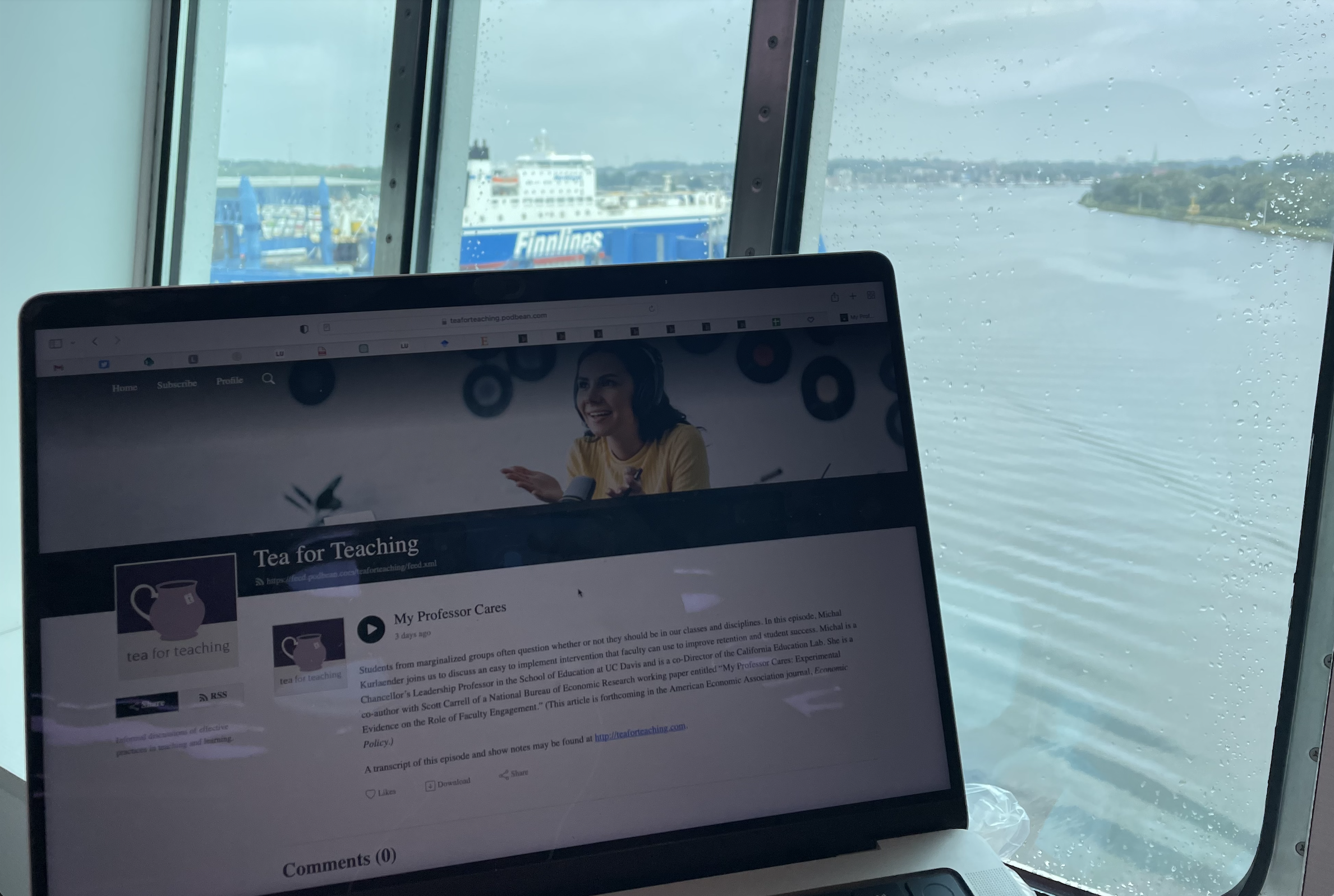
Just three emails to improve student grades and retention? Yes, please!
Sitting on the ferry back to Sweden, I listened to one of my favorite podcasts, “tea for teaching“. The episode was on the role of faculty engagement, specifically showing students that the professor cares, and how three emails can already make a difference!
I’ve been very interested in student belonging and mattering for a while now, and especially how to show students they matter in large courses. And Carrell & Kurlaender (2020)’s super “light touch” intervention might be a great way to do just that: only three emails (after first test or otherwise within the first three weeks), and then twice more; first tested on a small sample of at-risk students, later rolled out to about 3000 students; showed the largest effects for underrepresented minority students, both their grades and retention, with spill-over effects in other classes and over the next years! The emails were personal, showed that teacher knows how a student is doing, and cares about them. They offered feedback according to the typical best-practice feedback rules (i.e. timely and with concrete suggestions of what actions to take), and addressed a potential information gap by offering additional information on how to study for the next assignment, how to work with the syllabus, or encouragement to make use of the office hours.
Interestingly, everyone enrolled in the class benefitted from the intervention in terms of perceptions of their teacher (so no negative effects on people who did not get an email but might hear that their neighbor got one and then feel feel neglected in comparison to their neighbor), so there is really no reason to not start doing it, except possibly concerns about instructors work load. But then why not start with the most at-risk students, and then maybe later work to automate the feedback in order to be able to scale it up to all students? This podcast episode reminded me strongly of the work of Lim, Atif & Farmer (2022), and it’s encouraging that a completely different line of work comes to very similar, fairly easy-to-implement results!
https://teaforteaching.podbean.com/e/my-professor-cares/
Carrell, S. E., & Kurlaender, M. (2020). My Professor Cares: Experimental evidence on the role of faculty engagement. (No. w27312). National Bureau of Economic Research.